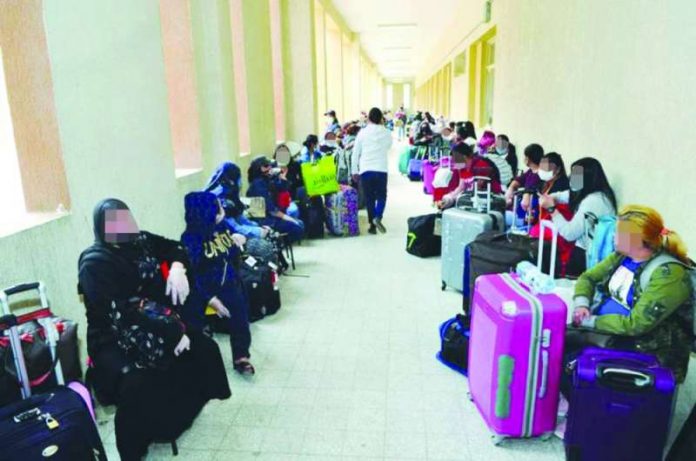The holy month of Ramadan in just around the corner and the citizens are looking forward to hire domestic workers at a time when specialists in domestic labor affairs and human rights activists say “the problem will worsen in the holy month because of the high cost of hiring this category of workers which has spiraled out of control and has reached almost 2000 dinars or a little less, for those who want to hire immediately,” and some are bracing to shoulder the burden of household costs keeping in mind the exorbitant cost of hiring a domestic worker.
They also called for “educating employers and domestic workers about their rights and duties,” stressing that “the violations that some are subjected cannot be generalized,” reports a local Arabic daily.
They considered that “the high fees for recruiting domestic workers, which state legislation did not succeed in limiting and are paid to the office and not to the workers, made the employer seek ways that violate the law to force the domestic worker to complete the contract period, or sometimes longer than the contracted period.”
At first, a specialist in domestic labor affairs, the owner of a domestic labor office, Bassam Al-Shammari, told the daily that “the problem of domestic labor will worsen in the month of Ramadan,” noting that “the nature of this month increases the burden of costs.”
He indicated that there is a segment of domestic workers working for others rather than their sponsor in mutual agreement with the sponsor, and another segment working for small projects owned by the sponsors, in addition to the fact that about half of domestic workers in Kuwait are male workers, and this means that there is a large deficit.
He pointed out that “the openness measures contributed to reviving domestic workers,” noting that “an Ethiopian delegation will visit Kuwait to sign the final agreement within Ethiopian efforts to visit a number of countries in the region, including Oman and Bahrain” to sign similar agreements.
He stated “Indonesia sends its workers to the rest of the Gulf countries except Kuwait because some of these countries have abolished the sponsorship system and others adhered to the requirements demanded by the Indonesian side,” noting at the same time that “the requirement to ratify the criminal status agreement for Filipino workers by the Philippine Foreign Ministry will delay the arrival of Filipino domestic workers by about three months”.
The Secretary of the Kuwait Society for Human Rights, Hussein Al-Otaibi spoke of “the need to take into account the humanitarian aspects in dealing with domestic workers,” noting that “the association has issued several publications in different languages in an effort to help domestic workers to know their rights.”
He pointed out that “the association has established a special unit to monitor and follow up issues of migrant workers’ rights in Kuwait, to shed light on employment issues and issue periodic analytical reports,” explaining that “the percentage of domestic workers in Kuwait constitutes about a third of the workforce, and some of them are subject to violations of their rights, but these violations remain ‘stray incidents’ and cannot be generalized.”
The Secretary of the Humanitarian Line Organization, Taher Al-Baghli, told the daily “Although the rights mentioned in the domestic labor law do not rise to the level of guaranteeing all the human rights of domestic workers, some of those rights are not granted, whether in a large or incomplete way, such as setting working hours, rest periods and weekend days off, and enabling workers to leave the house outside working hours.

















